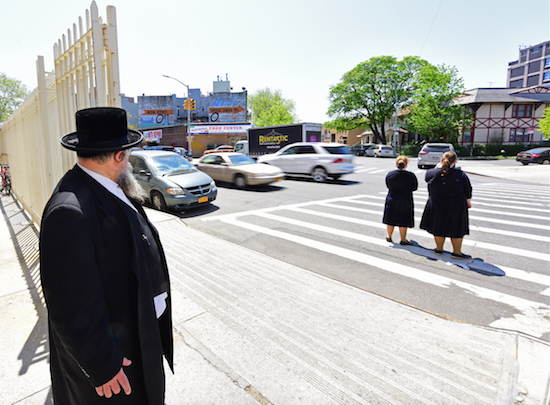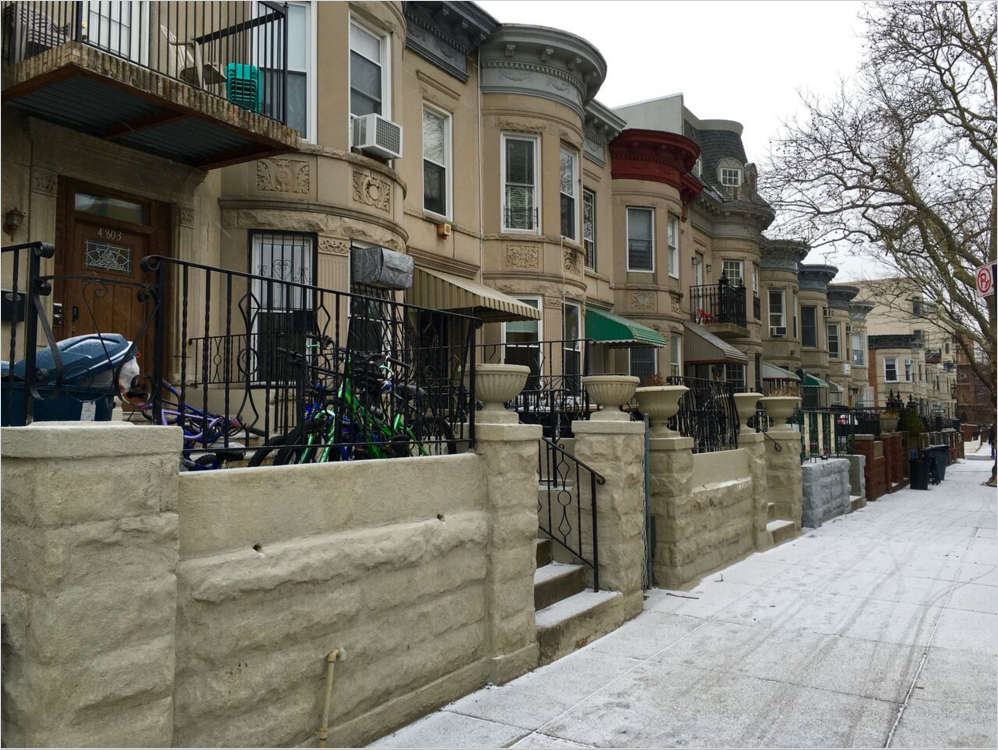Brooklyn Yeshiva leaders demand school zone speed cameras
Simcha Felder has become primary obstacle to camera program expansion

Rabbi Berel Hecht at one of his neighborhood’s dangerous intersections. He supports a bid for more speed cameras near schools, though his state Senator, Simcha Felder, does not. Eagle photo by Andrew Katz
Rabbi Berel Hecht can barely bring himself to watch the students at his yeshiva, Bnos Yerushalayim D’Chasidei Belz, cross the street to get to school. Drivers whipping around the corner of 15th Avenue and Dahill Road consistently endanger kids in the crosswalk.
“It’s dangerous,” he said. “It’s hard just to look at when they are crossing.”
